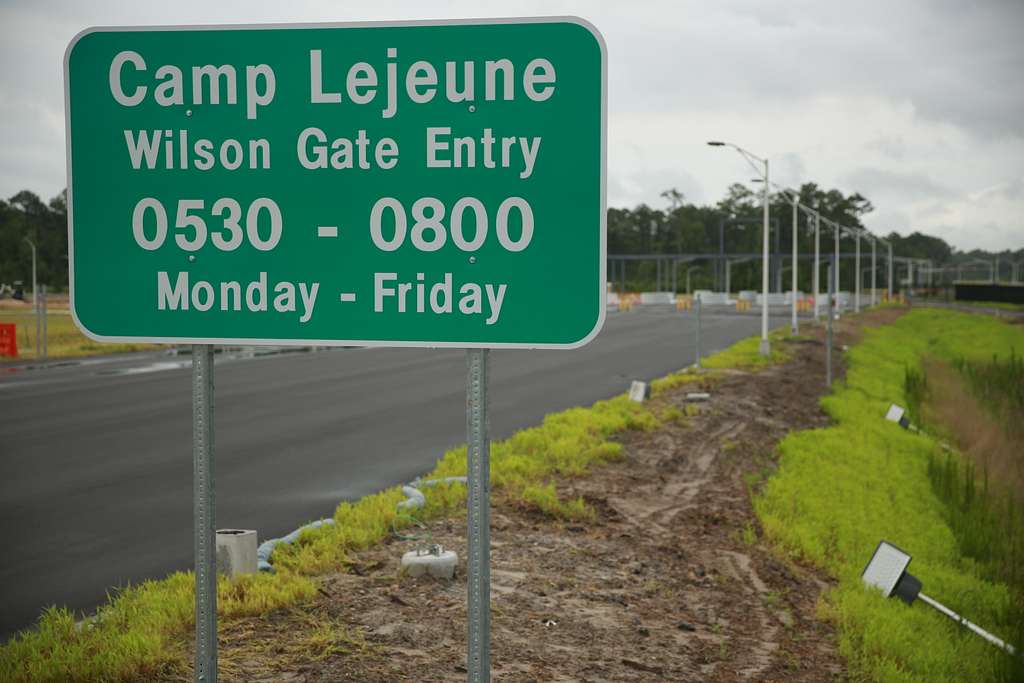The Water You Drink Can Kill You…Everything You Need to Know about the Poisoned Water at Camp Lejeune
Blog, Laws
On August 10, 2022, a new law called the “Promise to Address Comprehensive Toxics” (“PACT”) Act was signed into law.
The new law provides $6.7 billion in funding for veterans who suffered exposure to toxic water at the U.S. Marine Corps Base Camp in Camp Lejeune in Jacksonville, North Carolina between 1953 and 1987 and either live with severe health-related diseases or lost a loved one as a result. The new law is intended to provide a civil remedy for those who sustained illnesses from unsafe drinking water at Camp Lejeune that posed a greatly increased risk of cancer and other medical diseases.
Before the passage of the PACT Act, Camp Lejeune victims were barred from bringing legal action under the Federal Tort Claims Act. Now, the PACT Act allows service members, contractors, and civil servants to seek compensation for diseases and medical conditions caused by the toxic water at Camp Lejeune. The PACT Act allows benefits for the spouses, children and other dependents of veterans and service members.
Background about the Worst Water Contamination in U.S. History
U.S. Marine Corps Base Camp Lejeune in Jacksonville, North Carolina was established in 1942. In 1982, the Marine Corps discovered specific volatile organic compounds in the drinking water provided by 2 of the 8 water treatment plants on the base. The toxic chemicals include benzene, vinyl chloride, trichloroethylene (TCE) and tetrachlorothylene (PCE).
Camp Lejeune is considered the worst water contamination in U.S. history. Between 1953 and 1987, 1.1 million gallons of gasoline leaked into the drinking water at Camp Lejeune. The water contamination at Camp Lejeune was shockingly high at 2 of the water treatment plants at Camp Lejeune.
The amount of the solvents greatly exceeded the maximum limits set by the Environmental Protection Agency. In 1982, the levels of PCE (used in dry cleaning products) was 20x above the EPA standard and the levels of TCE (used in metal parts) was 200x above the EPA standard.
Well water contamination problems at Camp Lejeune have been documented for years. Roughly 1 million miliary members and their loved ones suffered from the effects of polluted water at Camp Lejeune. The question is why the Marine Corps waited to shut down the contaminated wells and notify service members and the public.
The Medical Conditions/Diseases that Qualify for Compensation under the PACT Act
There is a 25-year eligibility period for claims under the PACT Act. Qualified individuals covered under the PAT Act include those who: (A) Served on active duty at Camp Lejeune for at least 30 days between August, 1953 and December, 1987; or (B) Lived at Camp Lejeune for at least 30 days during that period while a family member served.
There are 15 medical conditions/diseases that are presumptively caused by contaminated water for those who meet the criteria:
- bladder and kidney cancers,
- aplastic anemia and other myelodysplastic syndromes,
- liver cancer,
- esophageal cancer,
- multiple myeloma,
- Parkinson’s Disease,
- non-hodgkin’s lymphoma,
- female infertility,
- lung cancer,
- breast cancer,
- miscarriage,
- hepatic steatosis,
- neuro-behavioral effects,
- renal toxicity, and
- scleroderma
If you or a loved one served at the Marine Corps Base Camp Lejeune (Jacksonville, North Carolina) or the Marine Corps Air Station (New River, North Carolina) between August 1, 1953 and December 31, 1987, you may be eligible for disability and health care benefits and additional compensation under the PACT Act.
The Deadline to Bring a Claim Expires in August, 2024
The statute of limitations on Camp Lejeune claims will expire in August, 2024. Filing an administrative claim is required before filing a lawsuit based upon exposure to polluted water at Camp Lejeune. If you reject a settlement offer, you can file a lawsuit in the U.S. Federal Court for the Eastern District of North Carolina.
If you have questions, we will be happy to help you. Call today for a free consultation.
